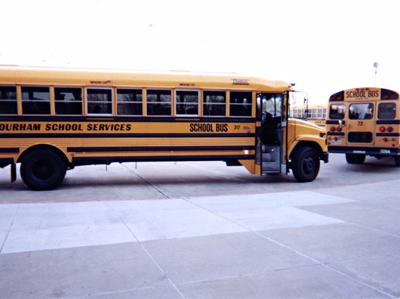All Nonfiction
- Bullying
- Books
- Academic
- Author Interviews
- Celebrity interviews
- College Articles
- College Essays
- Educator of the Year
- Heroes
- Interviews
- Memoir
- Personal Experience
- Sports
- Travel & Culture
All Opinions
- Bullying
- Current Events / Politics
- Discrimination
- Drugs / Alcohol / Smoking
- Entertainment / Celebrities
- Environment
- Love / Relationships
- Movies / Music / TV
- Pop Culture / Trends
- School / College
- Social Issues / Civics
- Spirituality / Religion
- Sports / Hobbies
All Hot Topics
- Bullying
- Community Service
- Environment
- Health
- Letters to the Editor
- Pride & Prejudice
- What Matters
- Back
Summer Guide
- Program Links
- Program Reviews
- Back
College Guide
- College Links
- College Reviews
- College Essays
- College Articles
- Back
The Importance of Public Education
It has become clear that educational level was a major divide between Hillary Clinton’s and Donald Trump’s supporters this past election. 79% of white males without a college degree voted for Trump, and so did 65% of white females without a college degree. This number is drastically higher for the Republican party than in 2012, when people without college degrees only made up 47% of Mitt Romney’s vote. Although people without college degrees did not make up all of Trump’s vote, it was a larger portion of voters than in the past few election cycles.
Unexpected by almost all projections, Trump awakened a “silent majority” of mainly high school educated whites from the Midwest who came out and voted. Many liberals have argued that the reason for this outcome was that those people are less educated, and therefore were less informed about Trump’s policies and objectives. They believe Trump took advantage of the fact that this particular group of people has felt left out of mainstream politics for years, and that he purposefully triggered a grassroots political movement.
Although less educated people did not make up all of Trump’s vote, the silent majority proved to be a key factor. While I do agree that there may be a strong correlation between educational level and the ability to be manipulated by a figure like Trump, the truth is more nuanced.
Since public education is not entirely standardized, the content of the curriculum widely varies from state to state. The education that students receive is often reflective of the particular values of a region. When almost all public high schools in Louisiana, teach creationism, for example, it results in those students having a significantly different perception of the world than students who receive a public education in other states.
This lack of standardization among public high schools is another factor that ultimately leads to such polarizing beliefs. Because there is different content being taught, graduates of public high schools are likely not only to have different values, but to have different perceived realities as well.
When a major portion of the nation believes in a different reality, there is a lack of commonality, and therefore no basis for effective communication. While in the past the political parties have been divided over policies and values, it a new divide is starting to come into focus: one between the college educated, and the less educated.
There are many statistics which support a correlation between one's level of education and affluence, which is magnified by the fundamental part of capitalism that dictates the rich get richer, and the poor get poorer. This past presidential election is a cumulation of growing tension between the rich and the poor; the educated and less educated. This idea can also help explain why the Western states and New England are getting increasingly liberal, while the South and Midwest are becoming more conservative.
What will the repercussions be of this growing gap in understanding? Is this presidency a fluke, or will the “new far right”, made up largely of poorer whites, become the new reality of the Republican party?
In the face of polarity, I wish to stress the importance of unity. The current generation in power is already far too divided and there is little basis for communication. A larger investment in public education, however, could hopefully create some coherence within the next generation of voters. Although people will always hold different beliefs, stressing the importance of equal public education could allow for a larger basis of communication among Generation Z.

Similar Articles
JOIN THE DISCUSSION
This article has 0 comments.
